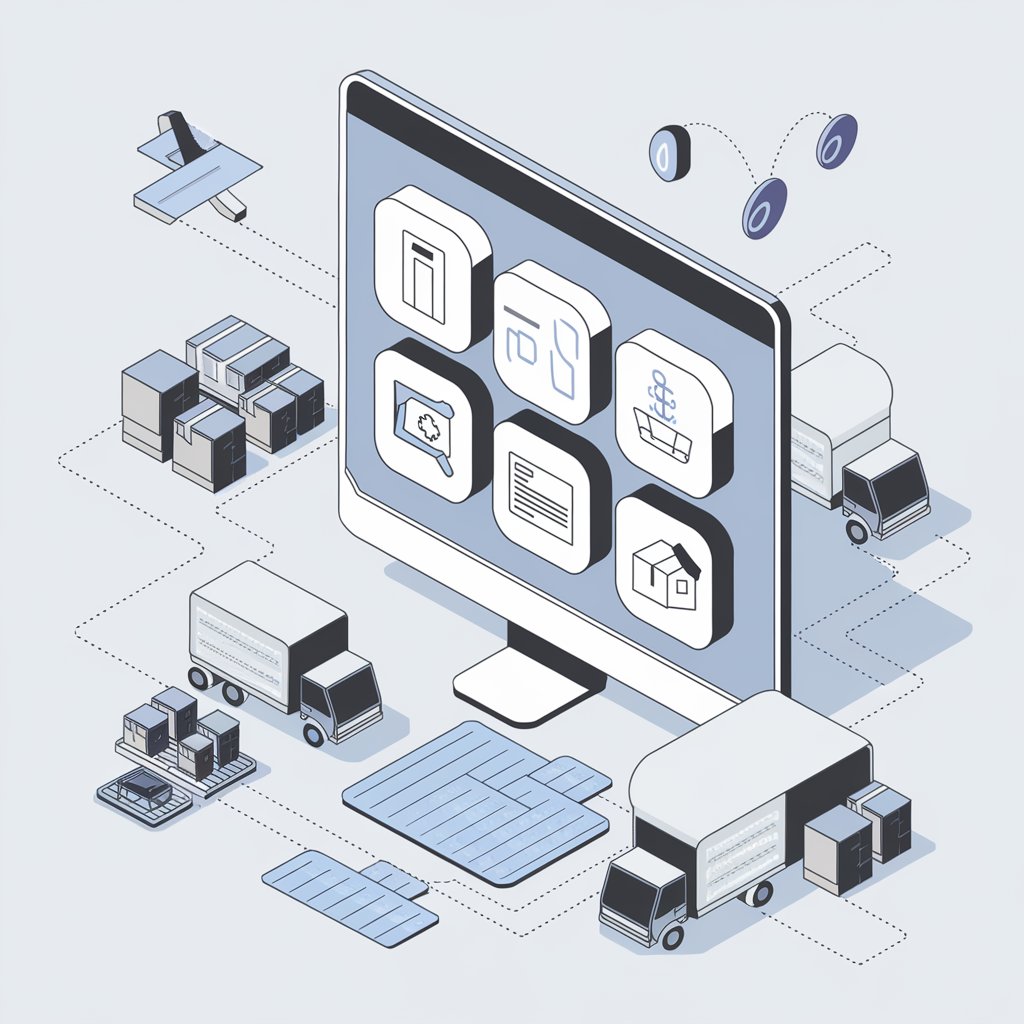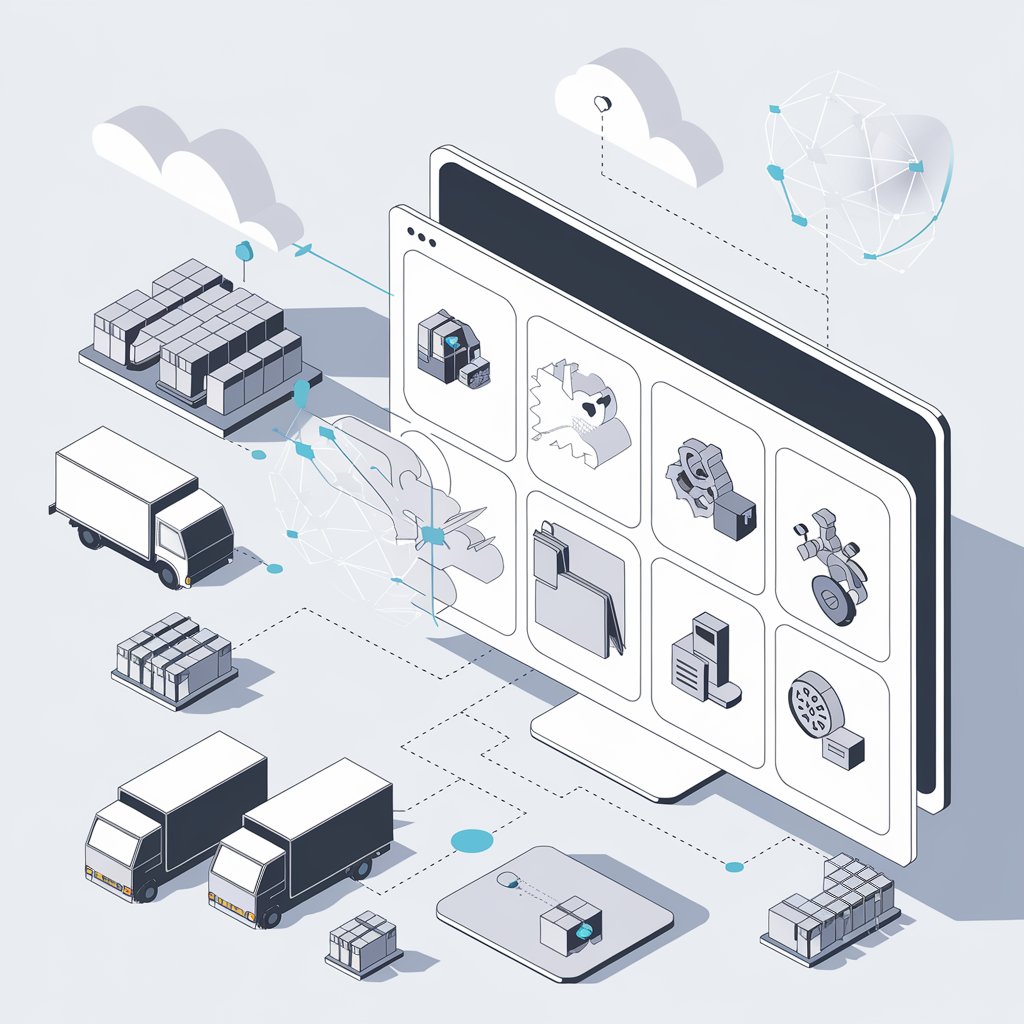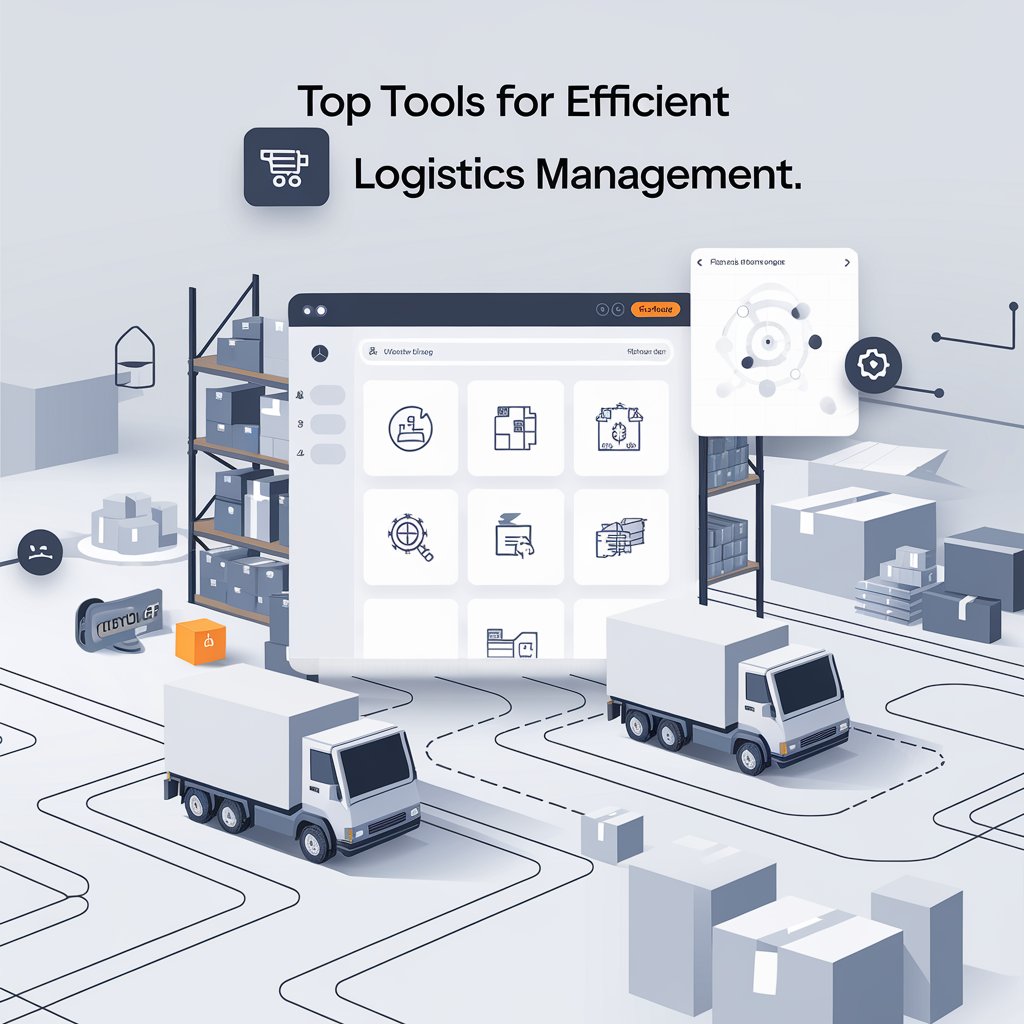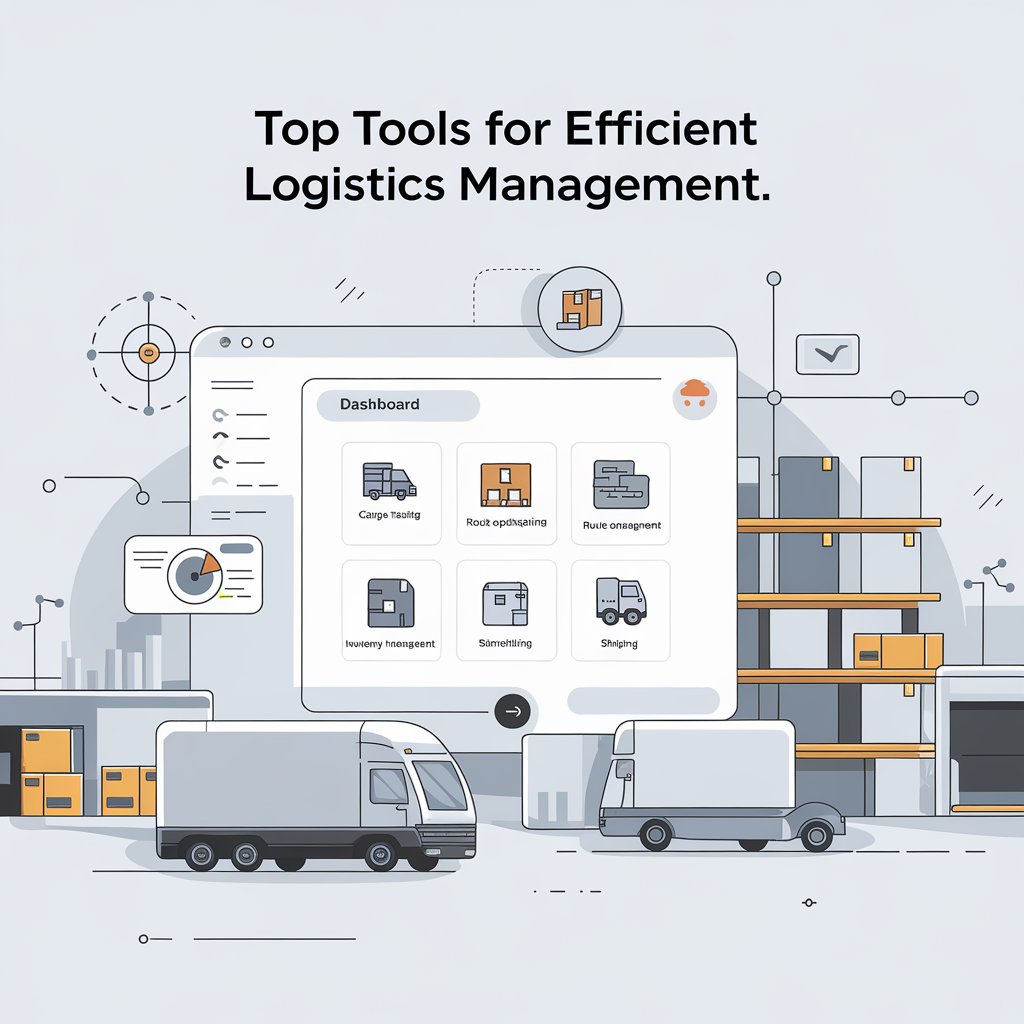Top Tools for Efficient Logistics Management

1. What Are Logistics Management Tools?
Logistics management tools are digital solutions designed to help businesses manage the various aspects of their supply chain operations. These tools provide capabilities such as:
- Inventory Management
- Order Tracking
- Route Optimization
- Warehouse Management
- Shipment Tracking
By automating and optimizing logistics processes, these tools improve efficiency, reduce manual errors, and enhance customer satisfaction.
2. Why Are Logistics Management Tools Important?
Logistics management tools are essential for businesses to:
- Increase Efficiency: Automate manual processes and optimize workflows.
- Enhance Visibility: Provide real-time tracking and monitoring of shipments.
- Reduce Costs: Identify inefficiencies and optimize routes to lower expenses.
- Improve Customer Satisfaction: Deliver accurate, timely information to customers.
- Ensure Compliance: Manage documentation and adhere to regulatory requirements.
3. Key Features to Look for in Logistics Management Tools
When selecting a logistics management tool, look for these essential features:
- Real-Time Tracking: Monitor shipments and inventory in real-time.
- Automation Capabilities: Automate tasks such as order processing, invoicing, and notifications.
- Integration Options: Ensure the tool integrates with your existing systems (e.g., CRM, ERP).
- Scalability: Choose a tool that can grow with your business.
- User-Friendly Interface: Ensure the tool is easy to use for all team members.
- Reporting and Analytics: Access data-driven insights to improve decision-making.

4. Top Logistics Management Tools in 2025
Tool A: Linbis Logistics
- Overview: A comprehensive logistics management tool designed for small to medium-sized businesses.
- Key Features:
- Real-time tracking
- Warehouse management
- Automated document management
- Best For: Freight forwarders, 3PL providers, and small logistics companies.
- Pricing: Custom pricing based on business needs.
Tool B: Magaya Supply Chain
- Overview: A powerful tool that manages end-to-end supply chain operations.
- Key Features:
- Inventory control
- Customs compliance
- Multi-modal shipping management
- Best For: Companies looking for a robust all-in-one solution.
- Pricing: Subscription-based model with custom plans.
Tool C: ShipBob
- Overview: A logistics tool focused on order fulfillment for e-commerce businesses.
- Key Features:
- Order tracking
- Inventory management
- Shipping rate optimization
- Best For: E-commerce businesses and retailers.
- Pricing: Based on order volume and storage needs.
Tool D: Route4Me
- Overview: A route optimization tool designed to streamline last-mile delivery.
- Key Features:
- Route planning and optimization
- Real-time driver tracking
- Dynamic rerouting
- Best For: Businesses with large delivery fleets.
- Pricing: Starts at $149/month.
5. How to Choose the Right Logistics Management Tool
Here are some tips for choosing the best tool for your business:
- Identify Your Needs: Evaluate the specific logistics challenges you face.
- Set a Budget: Determine how much you’re willing to invest.
- Consider Scalability: Choose a tool that can grow with your business.
- Test Usability: Request demos or trials to ensure the tool is user-friendly.
- Check for Integration: Make sure the tool can integrate with your current systems.

6. Benefits of Using Logistics Management Tools
- Increased Efficiency: Automate manual processes, reducing time and effort.
- Cost Reduction: Optimize routes, reduce fuel consumption, and cut unnecessary expenses.
- Enhanced Visibility: Track shipments in real-time, improving transparency.
- Better Customer Experience: Provide customers with accurate delivery updates and faster service.
- Improved Compliance: Manage regulatory documentation and reduce the risk of errors.

7. The Role of Linbis in Logistics Management
Linbis is a top logistics management tool that provides end-to-end solutions for businesses.
Key Features of Linbis:
- Cargo Tracking: Real-time visibility into shipments.
- Document Management: Automated document generation and storage.
- Warehouse Management: Manage inventory levels and warehouse operations efficiently.
- Customer Portal: Allow customers to track their shipments and access important documents.
Linbis is designed to improve operational efficiency, reduce costs, and enhance customer satisfaction.
8. Future Trends in Logistics Management Tools
- AI and Machine Learning: These technologies will improve route optimization, demand forecasting, and risk management.
- IoT (Internet of Things): IoT devices will provide real-time data on shipments and inventory.
- Blockchain: Blockchain technology will enhance security and transparency in supply chain transactions.
- Cloud-Based Solutions: Cloud-based tools will continue to grow, providing businesses with flexibility and scalability.
- Sustainability Features: Tools will increasingly focus on tracking and reducing carbon emissions.
.
9. Conclusion
Logistics management tools are essential for businesses looking to streamline operations, reduce costs, and improve customer satisfaction.
By exploring top tools like Linbis, Magaya, ShipBob, and Route4Me, businesses can find solutions that meet their specific needs and help them stay competitive in an evolving logistics landscape.
Investing in the right tool can transform your logistics operations, providing greater visibility, efficiency, and profitability. As the logistics industry continues to evolve, adopting advanced tools will be crucial for long-term success.
